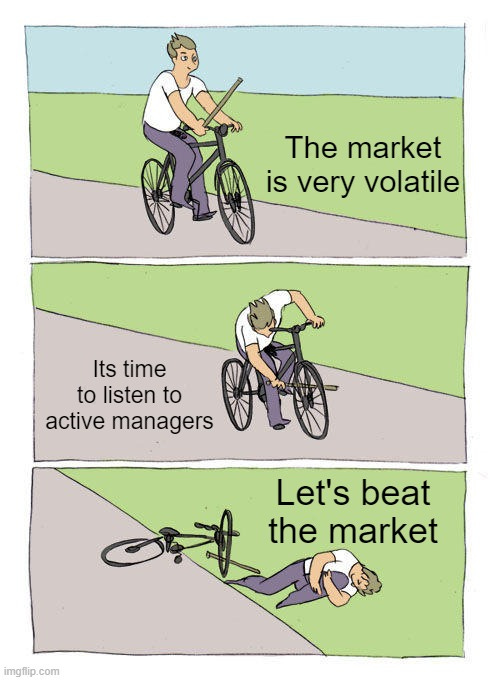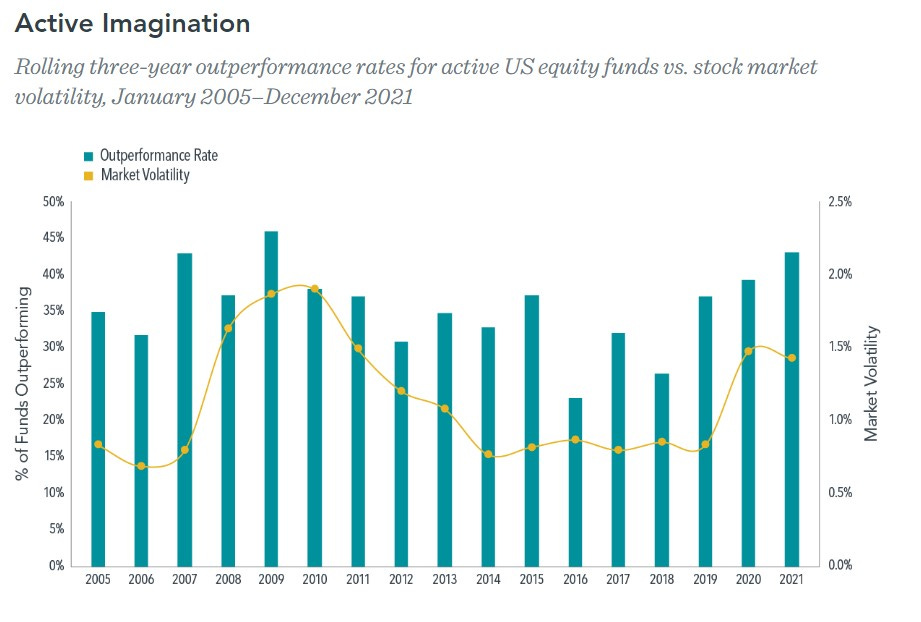Now is Not the Time For Active Management
Yesterday, ETFtrends published an article called “Weather Stormy Markets with Active Management.” Here is a quote from the article - “With stock and bond markets continuing to be so consistently volatile, long-term investors may want a seasoned asset manager at the wheel. That’s where active management can help. While passive strategies lack the flexibility to adapt to changing market environments, active ETFs can offer the potential to outperform benchmarks and indexes.”
and
“Active managers have the flexibility to take advantage of market volatility and add to favored positions when prices become more attractive.”
This may sound like good advice but in reality its simply not true—this is simply fake investment news.
As Wes Crill from Dimensional Funds (DFA) points out: “Many investors have likely heard the adage that active management performs better in times of market turbulence. This may sound like an emotional hedge for market stress akin to betting against your favorite sports team to balance an adverse outcome with financial compensation. However, a historical analysis of active US-domiciled equity funds finds no meaningful relation between market volatility and managers’ success rates; the implication is that traditional active investments may compound your concerns during times of market uncertainty.” (Source: Active Management Hasn’t Shined in Volatile Markets)
See the chart from Crill’s article below:
As you can see the rolling 3-year outperformance rates by the active managers “imply very little relation with volatility levels.”
I agree with Crill in that there is enough to worry about with all the market noise, volatility and constant bad news—active management will only make things worse for the investor.
SPIVA agrees that active management is a losing strategy. Over a 15-year period (ending 2021), close to 90% of actively managed large cap funds underperformed the S&P 500.
source: SPIVA
Turn off the noise, ignore the fund managers who make these claims and stay focused on the long-term with a diversified equity strategy.
Read the Crill article here.







